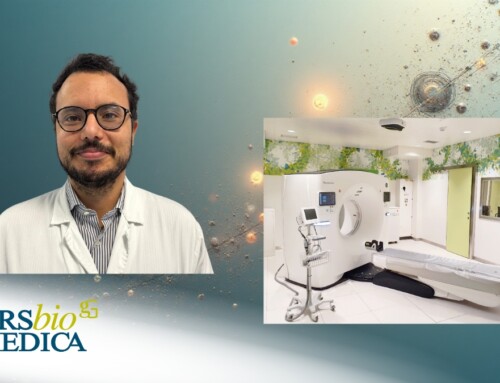
Articolo del 12/12/2024
On World Diabetes Day, it is crucial to reflect on a condition that, while widespread, can be effectively managed with the right approach. Diabetes is not merely a matter of numbers or statistics but a complex challenge affecting millions worldwide. Tackling it requires awareness, education, and appropriate support. Through a multidisciplinary approach by the specialized team at Arsbiomedica Clinic, diabetes can be addressed with a personalized and integrated care plan aligned with the best international guidelines.
We delve into the topic with Professor Alfonso Bellia, Associate Professor of Endocrinology at the University of Rome Tor Vergata and diabetologist at Arsbiomedica Clinic.
What is the best screening method for individuals who have never been diagnosed with diabetes?
Screening for diabetes doesn’t require much. A simple annual blood test can suffice to monitor key parameters, particularly for individuals at higher risk, such as those with a family history of diabetes.
A morning fasting blood sample is fundamental for this process. Measuring blood glucose levels and glycated hemoglobin (HbA1c) are the two primary parameters for effective screening. While HbA1c technically represents a different metric, it provides an average estimate of blood glucose over the past three months. These two measures are crucial for annual diabetes screening.
At what age is diabetes often underestimated?
We increasingly see patients developing diabetes, especially type 2 diabetes, which is closely linked to overweight and unhealthy lifestyle habits, at younger ages.
A few decades ago, diabetes was predominantly considered a disease of the elderly. Unfortunately, today it is diagnosed even in individuals in their 30s, particularly those with significant and long-standing overweight issues. Often, these cases are diagnosed only when the disease has already reached an advanced stage.
What Are the Main Side Effects of Undiagnosed Diabetes?
The primary issue with undiagnosed diabetes often isn’t the so-called side effects, as diabetes can remain completely asymptomatic for years, making early detection challenging, especially in individuals who don’t undergo regular check-ups. It’s more accurate to speak of complications, primarily cardiac issues, although chronic hyperglycemia can damage all major organs over time. Unfortunately, diabetes is frequently diagnosed only after the onset of such complications.
A common scenario is a heart attack, during which diabetes mellitus is identified for the first time. The golden rule for prevention is physical activity—any type of movement that improves lifestyle. While it may seem obvious, many people fail to incorporate this into their daily lives.
Among activities, aerobic exercise is particularly beneficial as it promotes weight loss, enhances muscle energy efficiency, and helps regulate blood sugar levels. Strength training, such as weightlifting, can also be effective. The key message is to stay active and adopt a consistent fitness routine.
Why Is a Multidisciplinary Team Crucial for Early Diabetes Detection?
A multidisciplinary team is essential for diabetes care because it is a complex disease. Modern understanding of diabetes goes beyond high blood glucose levels. The condition is primarily about organ damage, affecting the heart, retina, and kidneys. Long-standing diabetes patients are also at an increased risk of developing certain cancers. This complexity highlights the need for a team of specialists from diverse medical fields to provide the best care, especially for patients already facing chronic complications.
Today’s innovative medications not only reduce blood glucose but can also slow organ damage. Continuous collaboration with cardiologists, for instance, is vital for identifying patients with existing cardiac complications and tailoring treatments to maximize benefits.
A multidisciplinary approach focuses on treating the individual, offering significant advantages. Diabetes has long been perceived as a severe condition, often associated with the “burden” of insulin therapy. Patients frequently express concerns about this during their first consultations. Providing varied perspectives within a team helps empower patients without dramatizing their situation excessively.
Relying on a team of specialists ensures not only effective disease management but also improved quality of life. It supports patients in living with diabetes in a confident, informed, and balanced way.






